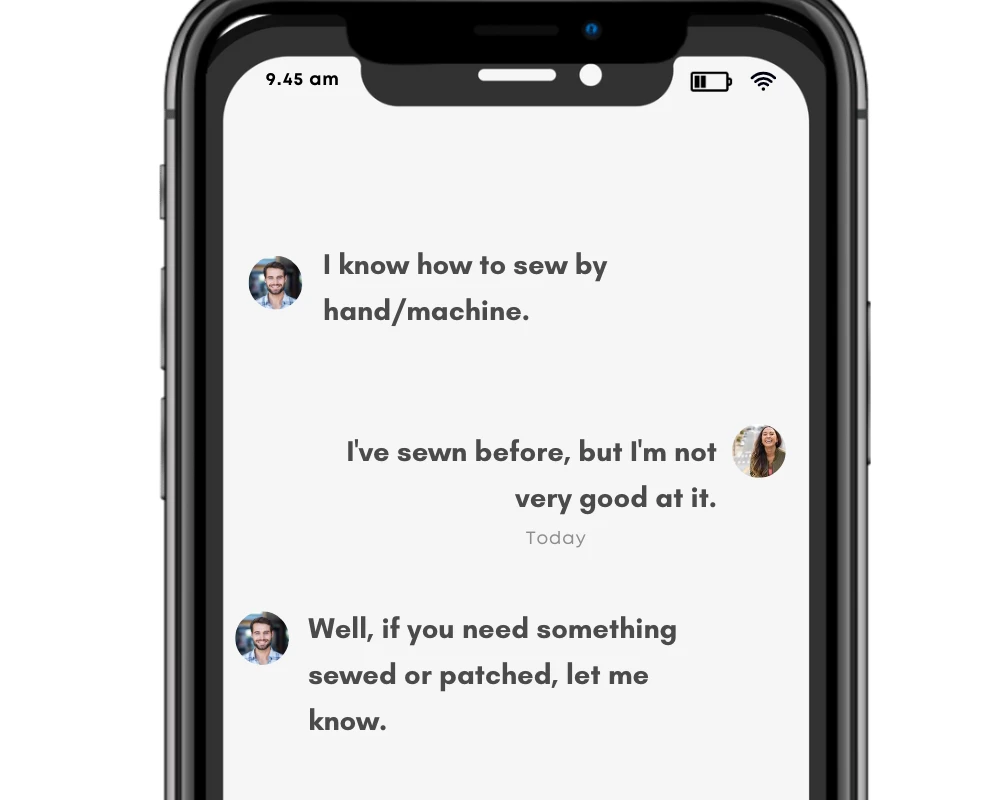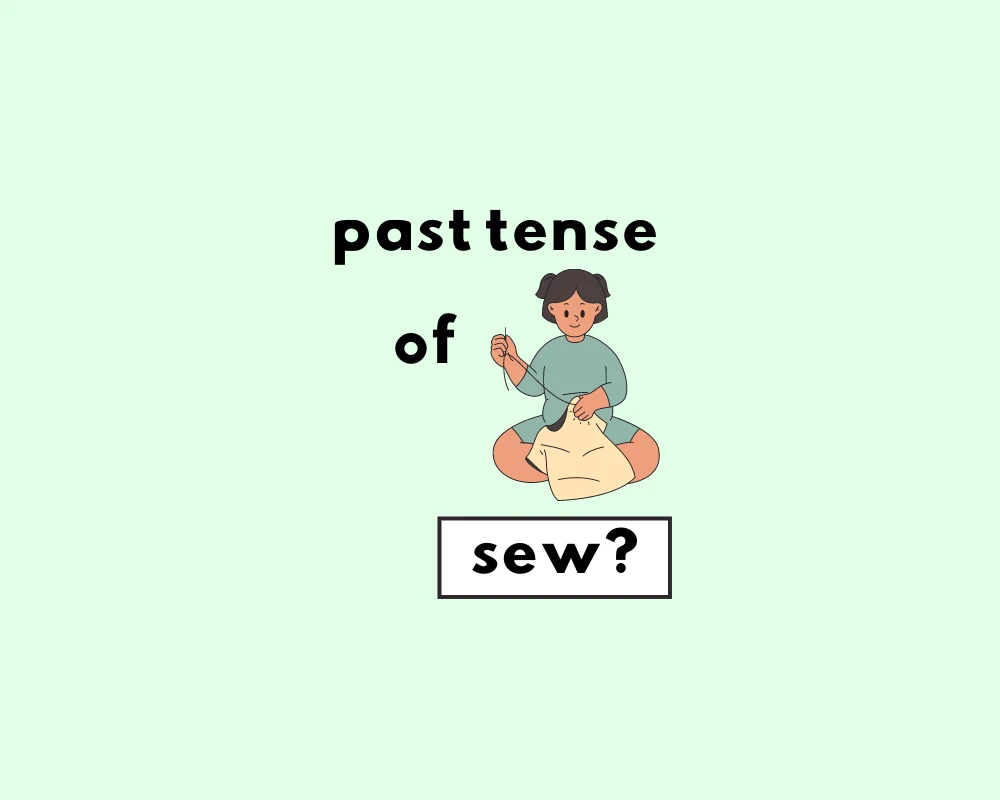
What’s the past tense of “sew”?
Were the clothes sewed (pronounced sow-ed), or were they sewn (which rhymes with loan)? Is sew another one of those irregular, and therefore inherently more complicated, verbs in English? You guessed it! Keep reading to learn more on the verb sew.
He sewed the button back on his shirt.
I’ve sewn since I was young.
He had sew the patch on before I got there.
I sewn this patch already.
Sewed or sewn?
First, let’s get a dictionary definition of the verb, sew: as defined by the Oxford Learner’s dictionary, to sew is when we “use a needle and thread to make stitches in cloth.” The verb sew (present tense) is both regular and irregular, since it has two commonly used past tense forms: sewed and sewn. Sewed is the regular verb form, since it ends in -ed; sewn is an irregular past verb form since it does not end in -ed.
- Sewed is more commonly used as the simple past tense conjugation, though sewn is also accepted as the simple past tense.
- Typically, sewn is used as the past participle verb form and pairs with auxiliary verbs, like had/have (to form the past perfect and present perfect tenses, respectively).
| present | past | future | |
| simple | I sew | I sewed/sewn | I will sew |
| continuous | I am sewing | I was sewing | I will be sewing |
| perfect | I have sewn | I had sewn | I will have sewn |
| perfect continuous | I have been sewing | I had been sewing | I will have been sewing |
1. To sew is in the present tense: Can you sew a button on for me?
2. Sewed is the simple past: He sewed a patch onto his sleeve.
3. Sewing is the present participle: I’ve been sewing her dress in preparation for the big day.
4. Sews is third-person present singular: She sews and designs dresses for a living.
5. Sewed/sewn is also the past participle: The squares of fabric were all sewn neatly together.
When to use sewed or sewn
Compare the following sentences (and note the differences between them).
Past tense: He sewed the patch onto the back of his jeans.
Past participle: The jewel was sewn into the lining of his coat.
The simple past tense conjugation (e.g., sewed/sewn) appears as a complete verb tense, without the need for any auxiliary verbs, such as have/had. The second sentence example, which uses the past participle verb form sewn, couples with auxiliary verbs to form perfect or progressive tenses in grammar.
Examples of the present tense verb, sew, in context
My mother taught me how to sew.
I know how to sew by hand/machine.
I will sew a seam in the dress. (future tense)
Surgeons were able to sew the finger back on.
She sews her own dresses by hand. (third-person present singular)
Examples of sewed (past tense)
He sewed the patch onto the back of his jeans.
He sewed a patch onto his sleeve.
The surgeon sewed the wound shut.
I sewed the button back on the shirt.
He sewed up the tear in his shirt.
Practice using the verb in different tenses with example sentences to memorize the correct forms.
Examples of the participle sewn/sewed
The jewel was sewn into the lining of his coat.
The squares of fabric were all sewn neatly together.
It looks like he has the nomination all sewn up.
…the ends of which are sewn together, a forming a kind of skirt.
On top, in the daytime, one of six flowery overalls Mutti had sewn for her.
—The Golden Lion, Pamela Haines.
Synonyms of sew
- hem
- stitch
- suture
- thread
- seam
Origin of the verb sew
From etymology online on sew (v.):
“Unite or attach (fabric, etc.) by means of thread or similar material, with or without aid of a needle or awl;” Middle English seuen, from Old English siwian “to stitch, sew, mend, patch, knit together, fasten by sewing,” earlier siowian, from Proto-Germanic *siwjanan.
Other commonly confused verb tenses
- What’s the past tense of spread?
- What’s the past tense of lead?
- What’s the past tense of choose?
- What’s the past tense of fly?
- What’s the past tense of lay?
- What’s the past tense of drive?
- What’s the past tense of draw?
Worksheet
According to the post, which form of “sew” is more commonly used as the simple past tense conjugation?
Which form of “sew” is typically used as the past participle and pairs with auxiliary verbs like ‘have’ or ‘had’?
The blog post states that the verb “sew” is considered both regular and irregular because:
In the sentence “He sewed a patch onto his sleeve,” “sewed” is used as the:
In the sentence “The squares of fabric were all sewn neatly together,” “sewn” is used as the:
She her wedding dress by hand many years ago.
The buttons have been on carefully.
Have you ever a quilt?
He carefully the edges of the fabric together.
The seam had been with very strong thread.
Frequently Asked Questions
What’s the past tense of sew?
+
Is sew a regular verb?
+
When do I use “sewn”?
+
When do I use “sewed”?
+
How do I use sewn as participle?
+
Yash, D. "What’s the Past Tense of “Sew”? Sewed or Sewn?." Grammarflex, Jun 22, 2025, https://www.grammarflex.com/whats-the-past-tense-of-sew-sewed-or-sewn/.











